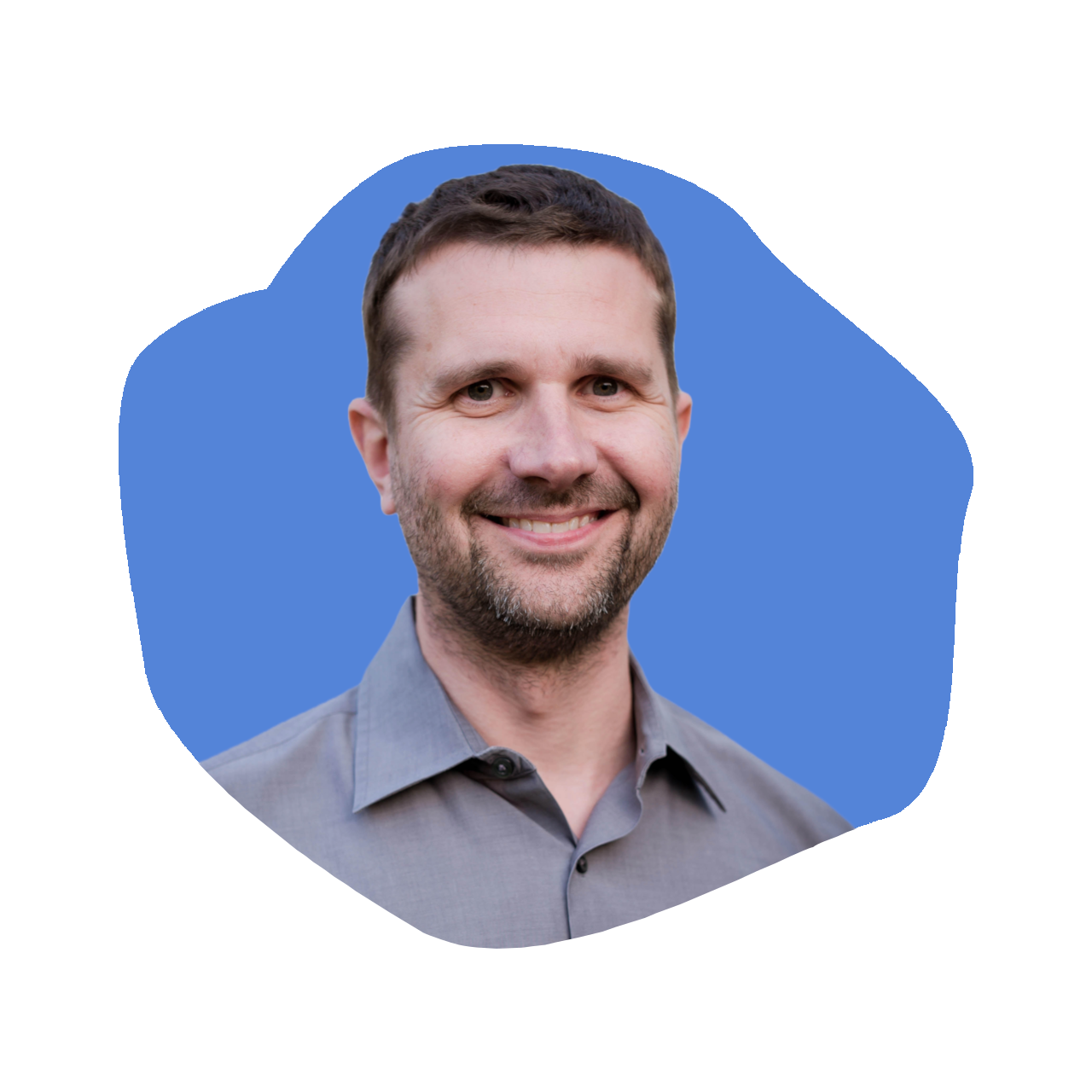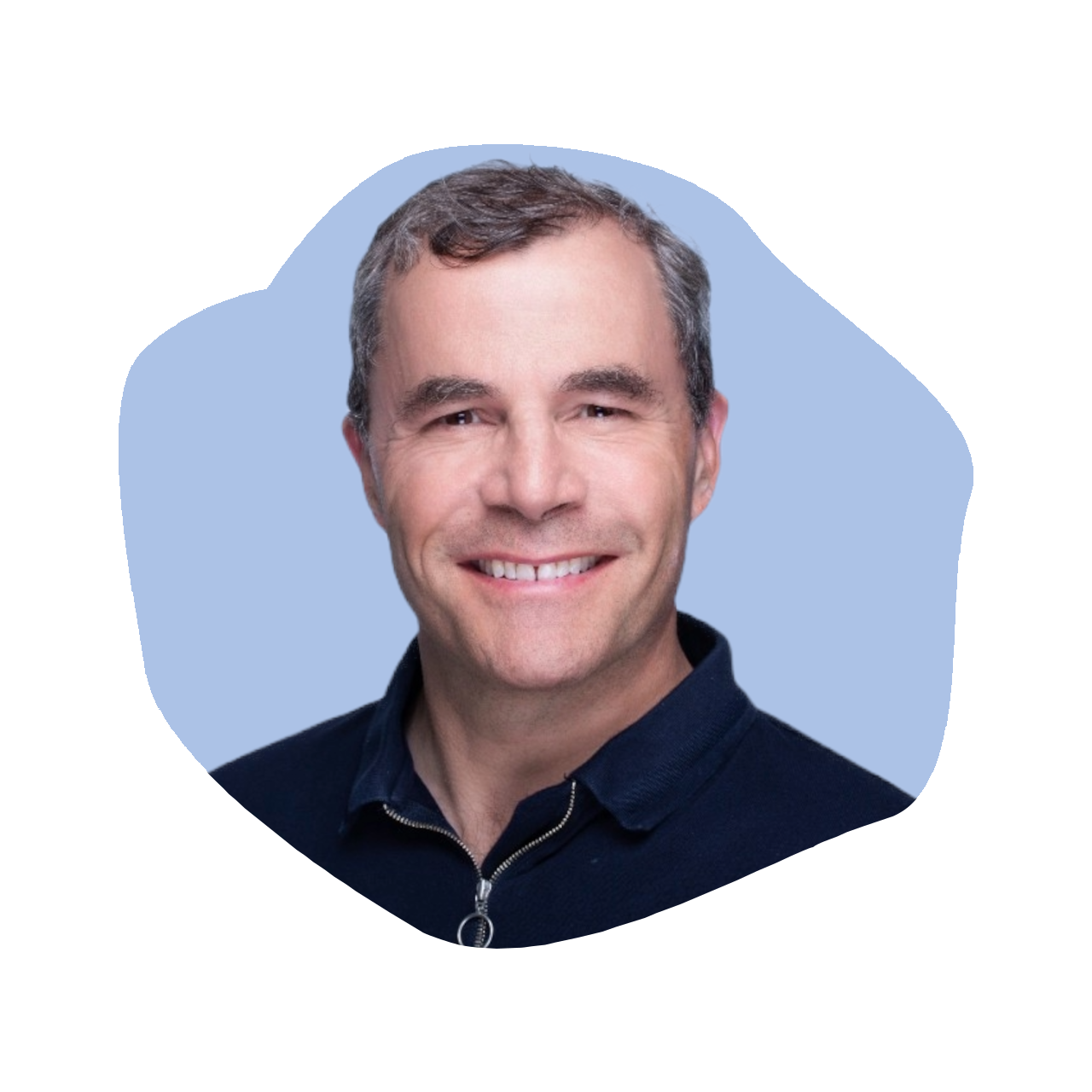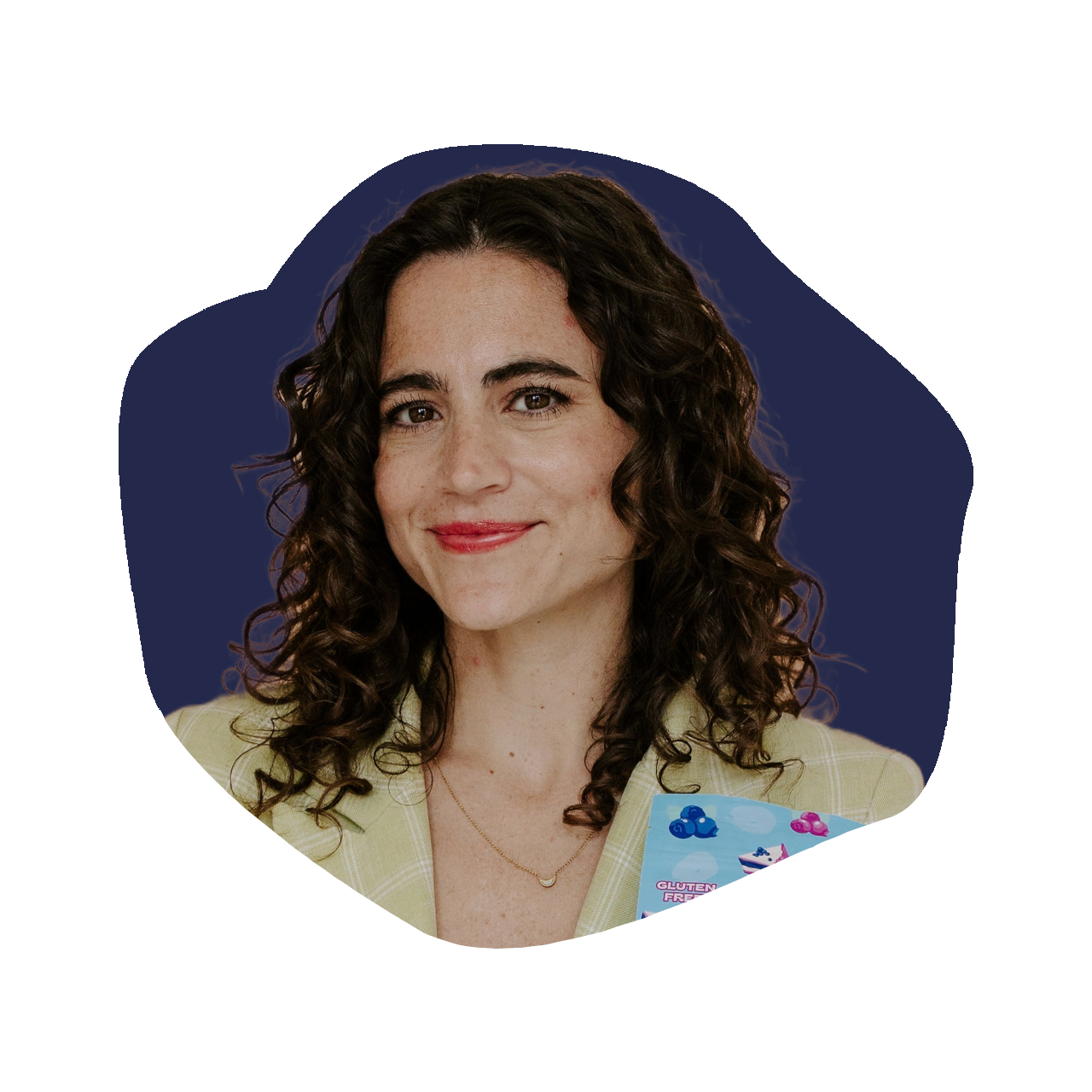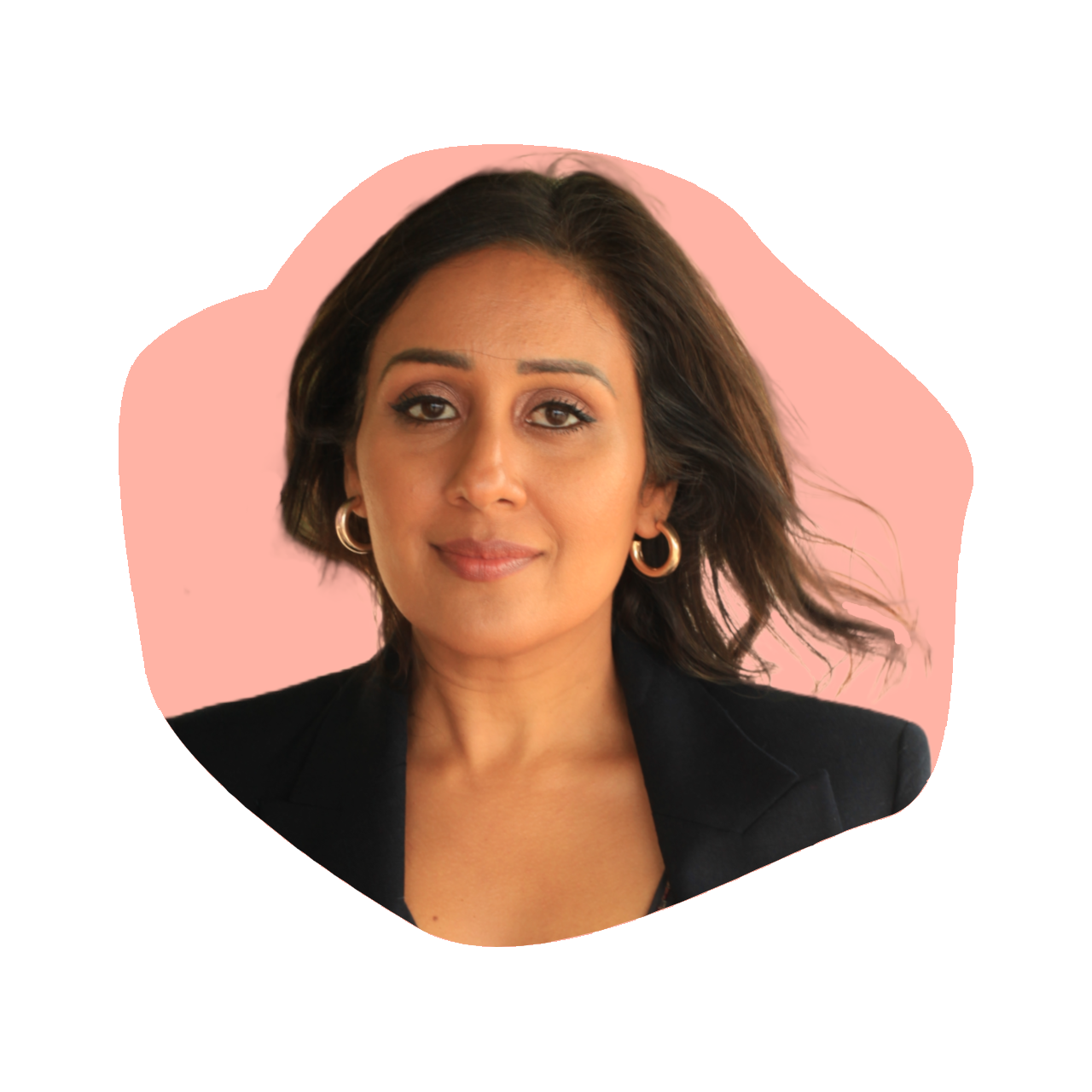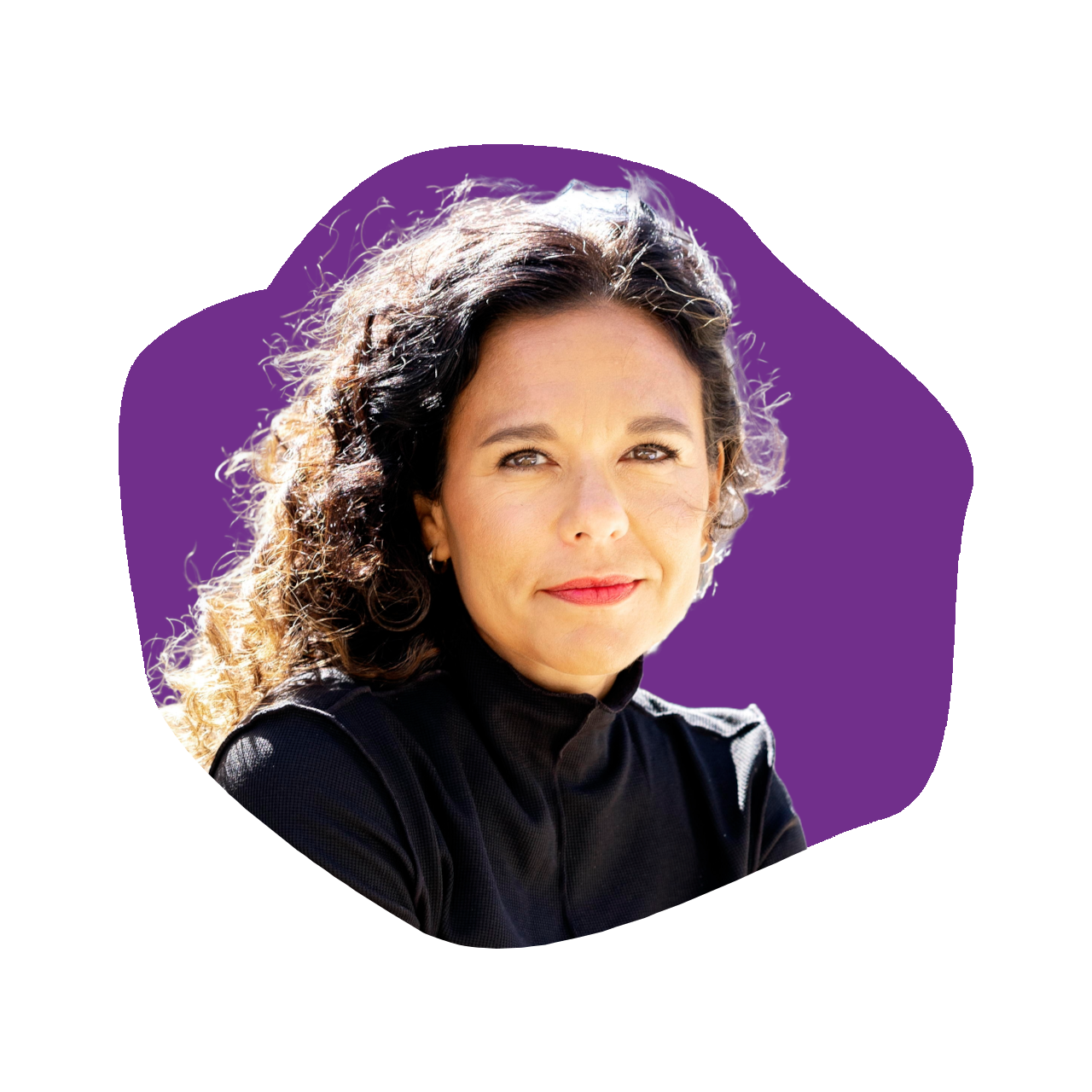Gina Bianchini: Founder & CEO of Mighty Networks and Author of Purpose
Episode 340
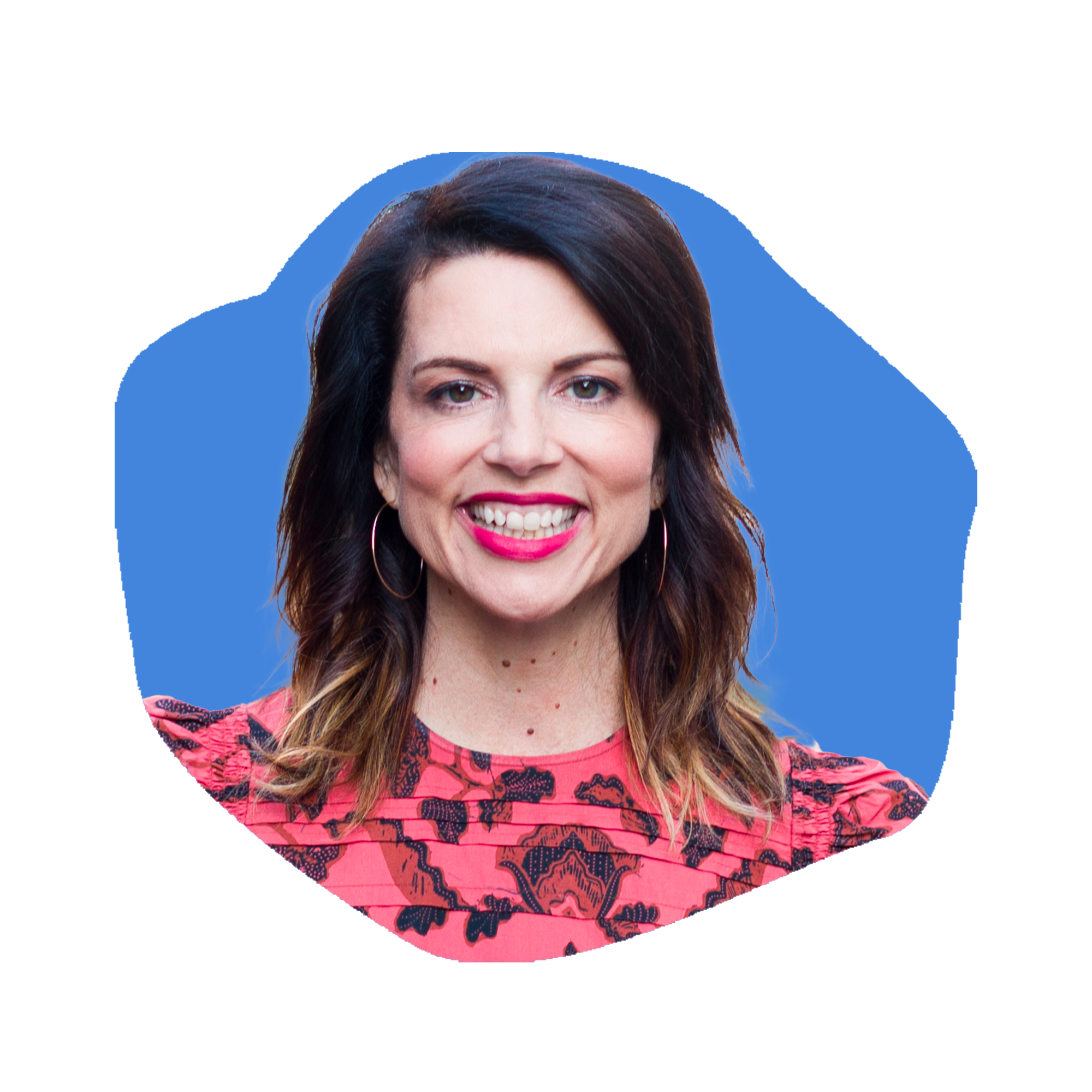
In this episode, Gina Bianchini, Founder & CEO of Mighty Networks and Author of her new book Purpose: Design a Community & Change Your Life, shares all about the importance of purpose and how you can find yours. Gina has built an incredible company with Mighty Networks enabling creators, entrepreneurs and brands to use cultural software to build digital communities. Now with her latest book Purpose, Gina shows how anyone can find their purpose and translate it into action through the power of community. This inspirational interview is filled with motivational steps that you won’t want to miss! On this episode of #TheKaraGoldinShow.
Resources from
this episode:
Enjoying this episode of #TheKaraGoldinShow? Let Kara know by clicking on the links below and sending her a quick shout-out on social!
Follow Kara on LinkedIn – Instagram – X – Facebook – TikTok – YouTube – Threads
Have a question for Kara about one of our episodes? Reach out to Kara directly at [email protected]
To learn more about Gina Bianchini, Mighty Networks and Purpose: Design a Community & Change Your Life:
https://www.linkedin.com/in/ginabianchini/
https://www.linkedin.com/company/purpose-design-a-community/about
https://www.instagram.com/mightynetworks/
https://www.instagram.com/gbianchini/
https://www.mightynetworks.com/
https://purpose.co/
Transcript
Kara Goldin 0:00
I am unwilling to give up that I will start over from scratch as many times as it takes to get where I want to be I want to be, you just want to make sure you will get knocked down. But just make sure you don’t get knocked down knocked out. So your only choice should be go focus on what you can control control control. Hi, everyone, and welcome to the Kara golden show. Join me each week for inspiring conversations with some of the world’s greatest leaders. We’ll talk with founders, entrepreneurs, CEOs, and really some of the most interesting people of our time. Can’t wait to get started. Let’s go. Let’s go. Hi, everyone, its Kara golden from the Kara golden show. And I am so excited to have Gina Bianchini. Here she is the founder and CEO of mighty networks and the author of the brand new book purpose design a community and change your life mighty networks is where creators, entrepreneurs and brands are using cultural software to build digital communities. And Gina is the master at figuring out how to not only build these communities, but also get the engagement that everybody wants so much. And she has created an amazing program called Community Design. That is a proven strategy framework for understanding and growing communities online. And now as I mentioned, she has taken a lot of that information that she has just become an expert at and put it into a book for us all to dig more into how to do this. And like I said, it is so good. And you have to get your hands on this book for sure. We’ll have everything in the show notes. But I just am so excited. Gina, that you are here. So welcome.
Gina Bianchini 1:52
Thank you for having me. Also, Kara, I should literally take you with me wherever I’m going. Because you just do a fantastic job of like pumping me up. So thank you think.
Kara Goldin 2:07
I love that. Well, the million dollar conversation. So I read that you grew up in Silicon Valley. I think back at the progress that has been made. I moved to the Bay Area in the 90s. But you actually grew up in the hotbed of tech companies with companies like Apple and HP and so many others. What was it like growing up in Silicon Valley? I think you grew up actually in Cupertino. So yeah, we’re
Gina Bianchini 2:36
so I grew up in Cupertino. I mean, the thing that’s really fun for me is that I might my grandparents had moved to Cupertino in the in the 50s to open a nursery when it was all orchards. And so I always viewed it as both, obviously, my hometown, but as much, you know, connected to the immigrant agricultural scene as the you know, as the tinkerers, as the engineers, and as the people that were exploring new ideas, through community really is what it was. And so, you know, when I was growing up there, people, everybody had an interest, everybody had a passion, everybody follow their curiosity, and there was no internet yet. And so because there was no internet yet, people were organizing small clubs and groups, whether, you know, in my own family, my father restored old cars, my mom, my mother actually was really into breeding and showing guinea pigs. And so we had the guinea pig club, we had that model, you know, the Model T Ford club. And these were groups of people who came together with intention to have a, a reason to organize a reason, the purpose that they were coming together around, and it fundamentally showed me what was possible when people who are curious or interested in the same topics, we’re navigating that interest, that passion, that goal, that lifestyle together, and whether that was you know, again, guinea pigs, or down down the street. The Homebrew Computer Club was how engineers who were exploring the very earliest days of being able to mail order parts to make your own computer we’re playing with these new concepts and these new ideas and if you take a step back, nothing has happened in the world in terms of innovation in terms of of changes in expectations and cultures and new discoveries, new ways of looking In the world without it starting with a small, close knit community of people coming together, to explore and discover and navigate, as well as develop identity and belonging, and ultimately support as well,
Kara Goldin 5:19
that explains a lot to me actually on. I mean, it sounds like you had it kind of coming into your future from a lot of different people, not just other entrepreneurs in Silicon Valley, but the crazy ideas are always the visionaries that end up coming up with this,
Gina Bianchini 5:39
and yet we taught is, it is so fascinating, we talk about visionaries as individuals, like when, when, when any of us who are, you know, part of this conversation right now and listening, when you hear the term visionary, you think an individual, you picture a individual person. And in the, in reality, visionaries actually come from the group, that they are a part of the scene that they are a part of, it is about whether whether it is the the frenemy kind of friendly competition that you’ve seen in terms of the evolution of rock and roll, how, you know, The Beach Boys came up with one way of essentially creating music, and the Beatles wanted to not only copy them, but copy them and push it further. Everyone is pushing themselves further. And I think that’s one of the really powerful dynamics of Silicon Valley, is the fact that, you know, there is this sense of, like, how do you take all of these different things that can create, you know, new worlds, and, you know, new ways of being and new cultures, and build on the ideas that come before us the ideas that are simultaneous to what we are creating, and ultimately, you know, fighting for the world that we want to live in, and the future that we want to create together. It comes from community and connection, not from one individual who, you know, goes to the mountaintop, the clouds part, and someone speaks to him. And it’s typically ahem, you know, that is not actually how innovation and discovery and really, you know, all of the things that make life fun and interesting and energizing. Such just not the way it works.
Kara Goldin 7:32
I read a quote that you said, whether you’re a brand new or entrepreneur community allows your members to get smarter, faster and understand the world. I’d love to hear you share a little bit more about that.
Gina Bianchini 7:46
Yeah. So community is essential to who we are and what what we stand for, and what we want out of the world, Kara. And what is so true about community now more than ever, is one community is the single most effective way to navigate, rapid change, chaos, and a world that is coming at you incredibly fast. So why is that? Well, community, you know, it’s not just consuming more content, it’s that, like, I get to learn from your experience, and you get to learn from my experience, and somebody else shows up and they’re like, Hey, this is where I am living physically, and what I’m seeing out there in the world. And so when you bring a community together, especially as a brand, or an entrepreneur, or as a creator, you are learning so much faster, because you’ve created a network that has different nodes in the network that are all contributing something. So if the world is changing, as fast as it is changing for us today, you want to be in a community and actually multiple communities, depending on the purpose of that community, because you are going to be able to create situational awareness of what is happening and make sense of it so much faster. Second thing that a community is amazing, I’ll give you three second thing that a community is phenomenal at is helping people create new practices or change their habits. So when you start to think about you know, as a as a brand or an entrepreneur, as a creator, you actually want people to either make changes in their lives or reinforce what they are already doing. But in no way, shape or form. Are you just thinking about the status quo. And so when you think about creating a new practice, it’s, you know, being able to lean on other people, not just for accountability, but also your identity. I am a person who exercises in the morning and when I am building that new practice or building that habit or changing from being a person that doesn’t work out in the morning. You want a community because you are much more likely to to tap the energy and momentum of a community versus using up your finite set of personal discipline, self discipline. And then the third thing that community lets you do is when you when you can successfully navigate rapid change, when you can successfully build new practices or habits, you’re actually able to achieve results and transformation in your life more easily, with more energy with more creativity in ways that you just can’t do on your own. So when you take all of these things together as a brand, or an entrepreneur or a creator, thinking that first of all your social media following which is I talk out at you, you talk back at me, but no one’s really talking to each other, you are missing out on this incredible asset, and this incredible life experience, both for what your members are able to get from what you are building, and what you are able to get from what you are building. And that’s why I love community.
Kara Goldin 11:03
So you founded mighty networks in what year 2017? And obviously, you’re very interested and very knowledgeable about community, but what was it that made you say, I need to go and start a company around this?
Gina Bianchini 11:17
Yeah, I mean, I think about the single best way I have, and really the only way I know how to approach entrepreneurship is trying to do everything but the thing and then realizing, like, oh, gosh, I this is probably a family is a family podcast, but like, oh, shoot, like, I’m gonna have to do this because no one else is doing it in the way that I believe is going to be the way that gives us the most energy and the most like and really realize these things around navigating rapid change, being able to build new practices and new habits, and ultimately, helping each and every one of us achieve results and transformation in our lives that we just simply can’t do on our own. And what I was seeing more and more was just this, this munging together of concepts that say an audience is really a community. So there’s a time and a place to build an audience. That is typically when you you know get you have content, or you have an idea that you want to bring into the world. The problem is that if all you are able to do is build an audience and not build those kinds of connections between members where you are making real connection and building real relationships with the other people who are interested in that topic that interests that passion, that goal. And if you’re not able to make those connections, and that the brand or the community host as we, you know, we use that term is not able to be a facilitator of those relationships, as opposed to just a content producer, kicking out content to an audience, well, you’re not going to get all of those benefits that I just described, being able to navigate rapid change, being able to build new practices and habits. audiences don’t build new practices and habits. communities do. And audiences are not how we get results and transformation in our lives. Communities are how we do that. And so, you know, I took on this challenge, because I’m like, wait a second, that the whole idea that we are we are munging, which I think is the technical term, I’m not positive, but like munging together the power of community to this sad surface, superficial other thing, which again, has a role, which is this to build an audience, but it’s so different from community that I basically was like, Alright, fine, I’m going to have to go do this. And fortunately, I’ve been able to recruit some great people around me. And our approach to community, and what community can be in people’s lives. What it can be in people’s businesses is very different. Because we start from this place of it’s not just about content. It’s not just about chat. It’s about how do you use content to, to introduce new ideas into the world online courses and education and learning to like, allow people to go deeper in those ideas, as opposed to just drop them on the floor, which is what you’re doing in social media, because you only have three seconds, and you’ve got it like you’re competing with everybody for different ideas. But once you’re able to get people into and meeting other people, where they’re able to go deeper and apply those new ideas. Commerce is actually the third of four pieces of really designing and scaling not just a community but culture because with commerce, people pay attention to what they pay for. So if you want to really harness your early super, super consumers brand loyalists, core commune Do whatever you want to call it, actually charging for some special experience is really valuable. And then ultimately community is how people make ideas real in their lives, through their own identity, through their own motivations, through the relationships, and how they see themselves through other people, what they are surrounded with in terms of philosophy and values and approach. And that is how you design and scale a culture that when you have one, a culture grows faster than content or community. A culture is also how you really build the most loyal and heavily engaged set of people. And ultimately, it’s how you change lives. Because a community that has a really strong culture is how you navigate rapid change, build new practices and new habits and ultimately help everybody who is a part of that community, live the life that they want to live and realize their fullest potential.
Kara Goldin 16:12
Your Community Design masterclass is awesome. And it’s helped 1000s of people. So we’ll definitely have all of that information in the show notes as well, but really helps people to crystallize their purpose and impact one community. And who do you see kind of benefiting from this? I’m curious, like, is there one example that you can give of a company that has really kind of done it right with you?
Gina Bianchini 16:38
Yeah. So you know, taking a step back, the reason I created the community design masterclass, which over 8000 people have been through it successfully created some of just amazing communities from it, is because community is about the design of who and how you’re bringing people together, even more than the software and the software plays a really important role to make things easier. But I also loved to think about, you know, we are programmed and wired for community, even if we’re rusty at it after spending, you know, three plus hours a day online, being at our houses in a global pandemic, all of these things have made us very rusty at what does it mean? And what does it take to bring people together with intention? And also, you know, what I learned in community design is, well, before you get to the point where you’re like, Okay, I’m going to create or host a community, you are, you’re grappling with topics around, why am I here? You know, what, what am I doing? And that’s one of the reasons why I wrote the book in terms of, then how do you translate it into action, turns out community is the easiest way to translate your purpose into action. And one of my favorite examples of this is certainly on the brand side, think Yoga with Adriene. And what she and her team that 11 million YouTube subscribers, and a very successful business with video, yoga, on demand, or I should say, yoga, on demand. And they created a fine, what feels good, cooler or cooler community that has over 225,000 people in it. And what they’ve done is this is for their, this is for their truly passionate, hyper valuable members, and people who you know, are more than just fans and followers on social media on YouTube. And that community has not only grown organically, it is it is hyper engaged. And they have then allowed Yoga with Adriene to get even bigger. So so when you have this ability, if I think about it and talk about is when you start with community, you can actually build an even bigger audience than you would ever be able to do when you start with an audience you’re building out an audience and, and thinking about community as almost like an afterthought for like a subset of your people. So that’s a brand now I’ve also seen people build community, really from the ground up and have so much more success not just with their community, but in terms of building an even bigger audience. And my favorite example of this is Martina sevens and what he’s done with the slow AF Run Club, four, back of the pack runners are slow runners, and Martinez A has been able to over double his social media following on Instagram at 300 pounds in running because of the community that he has built up 10,000 People that is also then produced amazing brand sponsorships and where he’s an ambassador for Adidas. And he will announce something very soon, that is also not possible with an audience alone. But really, by starting with a community, he has been able to grow faster with more people talking about this movement of back of the pack runners. So those are just two examples of how purpose which I define as the clear, positive intention for our time, our talents, our energy, and our focus for a brief time on planet Earth. how that translates to community and and in helping other people find their their tribe, find the people that are doing things that are inspiring, and that give each and every member the sense of I’m home, that’s never going to be one community. It’s a portfolio of community for the different parts of our lives. And there is no greater calling than helping people realize their fullest potential. Or bringing people together with intention
Kara Goldin 21:33
and finding their purpose, which leads into your fabulous book called purpose, design a community and change your life in which you can help lots of people guide them to finding their purpose, what do you hope people will gain from your book?
Gina Bianchini 21:50
So first and foremost, the book is not a commercial for starting a community if you are like, Oh my gosh, you know, that sounds really hard. First of all, it’s not. But it the book is really designed to turn purpose and finding our purpose into a practice that we can bring into our lives in the easiest, easiest way possible. I call it the purpose 30. And it’s 30 minutes, 30 days, six questions, perfect for the holidays, perfect for January, perfect really, at any time of year, when we have so much coming at us Kara on a you know, it’s like what is the point of our phones, the point of our phones is like what’s happened in the world since the last time I checked my phone, you know, three minutes ago. My goal for this book is to get more people who are able and motivated to carve out just 30 minutes a day, for just 30 days, to start being able to hear what is inside of us around where we get meaning where we where we want to have an impact, and how we want to harness the things that are uniquely ours to help ourselves realize the most exciting and interesting life that we can possibly realize as well as, again, the highest and best use any of us can, can have is helping others realize their fullest potential as well. And so the purpose 30 Is is one of a few different practices and techniques that I offer in the book, and are really easy and really fun to do. And all of it is with this goal of giving ourselves a North Star to navigate the world and navigate present life, which is moving very fast and offers us lots and lots of different ways to just consume, consume and be sold to, and how do we take an active role in defining and designing the life that we want, the impact that we want. And ultimately, the relationships that we invest in both in our I call it your core community, the people that that that, you know, were related to and the friends that we’ve had forever and the people who surround us physically, and then the entirely new and exciting and innovative ways that community and digital communities will evolve from here. And so I really wrote the book to offer people a very concrete path to finding and crystallizing not just one purpose but multiple purposes. As our time on Earth is short, and we have the opportunity to really have the life that we want Want, but the impact that we are all here on some level to have towards and around, you know, the people and world around us.
Kara Goldin 25:11
I felt when I was reading the book that I think a lot of people’s purpose shifts to, or especially after, you know, major, major moments in our life, whether it’s changing roles, or a pandemic, or maybe you decided that you are going to be leaving your career at the end of this year, or whatever it is, I mean, if
Gina Bianchini 25:36
you just graduated from college, or you are two years into your first job, and you’re like, is this it like, what am I doing here? Yeah, what is happening? So, it’s so true. And it’s one of the reasons why it’s not just about one concrete purpose that you find at, you know, X, Y, or Z age. And that’s it for the rest of your life. Life is the most interesting when you get to explore different parts of yourself, and have different purposes for different chapters in our lives, different parts of our, you know, our interests, our passions, our goals, there, it’s meant to evolve, which is also why having purpose as a practice, purpose, as a verb, not a noun, is so powerful. And why I am such a believer, I, you know, again, that, you know, I’m talking about purpose, and I am probably in some, like, I’m not not a member of the clergy. I’m not, I’m not I don’t have a huge audience. I don’t have, I don’t I’m not a neurobiologist. I’m not a psychologist, I’m not a professor. But what I do have is the experience of watching people, from all walks of lives and all over the world, find practices that change everything. And that allow us to start from where we are. And through a set of these practices that are meant to be fun, and meant to be lightweight, see a different future for ourselves in the world, our world around us, and then work to get there.
Kara Goldin 27:23
It’s such a good book, I mean, it has me thinking not, and honestly, like, I don’t think it’s just for an individual, but also for a company too, I started to really think about how you would place this into your work environment, and maybe your purpose changes
Gina Bianchini 27:42
fit the the questions, those six questions I mentioned, are something that yes, we can go through them as individuals. But just as my own team has started to think about them as a team, they’re incredibly powerful. And just so I’m clear on what those questions are, you know, the whole point of your purpose 30 is being able to, to, to essentially go to the future time travel to the future. And the one, the one thing about this future state is that you are able to bring into existence, anything you want. So from that future state five years, 10 years in the future, and with the ability to creatively and with maximum imagination, think about what is this future state and look back on the present? So the first question of the purpose 30 is, what are you able to do in the future that you cannot do today? And in fact, it’s where three things you can do in the future that you can’t do today? Think about that, for your team, this ability for us to come up together with a picture of the world of what are we able to do two in the future that we can’t do today? Second question, what are three things that you have accomplished? Third question, what are three things that you’ve taken a stand for? And that’s not, you know, we’ve gotten so tied up into just that. Taking a stand means political doesn’t mean political? It’s what have we taken a stand for what have what have we advocated for what is the what is the state that that we are in? And how did we get here? The fourth question is, what is better in the world in the most unexpected and surprising ways? And that is that question is designed again, for us as a team or as individuals to be able to play to be able to think about like, well, what changed as opposed to so much of what we take in on a given day is all the bad news, and and all the ways that we are screwed, and it really doesn’t matter what side of you know what media you listen to, it’s always here’s all the ways we’re screwed. Got to have a counterweight to that because the only The people that are going to decide the future, it starts with all of us last two questions, we moved from the individual or the small group into something bigger. So after the fourth question of what does how is the world better? In the most unexpected and surprising ways? Who have fifth question, Who have you brought together? Again, really fun question to think about for us as a team? And lastly, what are they able to do? What are three things that they can do in the future that they can’t do today? So summarized as six questions?
Kara Goldin 30:34
No, it is so needed right now I think especially as we’re heading into a brand new year it really kind of reset me I finished the book this weekend and it is a must read for sure. So it was such a pleasure talking to everyone. We’ll have everything in the show notes. But definitely everybody check out Gina’s company and also everything that she’s doing with that but also with the book you have to have to get it so love, love, love having you on here and thank you for every thing that you bring Gina, you are a shining star of positivity and so so needed in today’s world. Thank you again, Gina.
Gina Bianchini 31:17
Thank you.
Kara Goldin 31:18
Thanks again for listening to the Kara golden show. Please give us a review and feel free to share this podcast with others who would benefit and of course feel free to subscribe so you don’t miss a single episode. Just a reminder that I can be found on all platforms at Kara golden and if you want to hear more about my journey, I hope you will have a listen or pick up a copy of my book on daunted which I share my journey including founding and building hint we are here every Monday, Wednesday and Friday. Thanks everyone for listening. Have a great rest of the week and good bye for now. Before we sign off, I want to talk to you about fear. People like to talk about fearless leaders. But achieving big goals isn’t about fearlessness. Successful leaders recognize their fears and decide to deal with them head on in order to move forward. This is where my new book undaunted comes in. This book is designed for anyone who wants to succeed in the face of fear, overcome doubts and live a little undaunted. Order your copy today at undaunted, the book.com and learn how to look your doubts and doubters in the eye and achieve your dreams. For a limited time. You’ll also receive a free case of hint water. Do you have a question for me or want to nominate an innovator to spotlight? Send me a tweet at Kara golden and let me know. And if you liked what you heard, please leave me a review on Apple podcasts. You can also follow along with me on Facebook, Instagram, Twitter and LinkedIn at Kara golden thanks for listening





